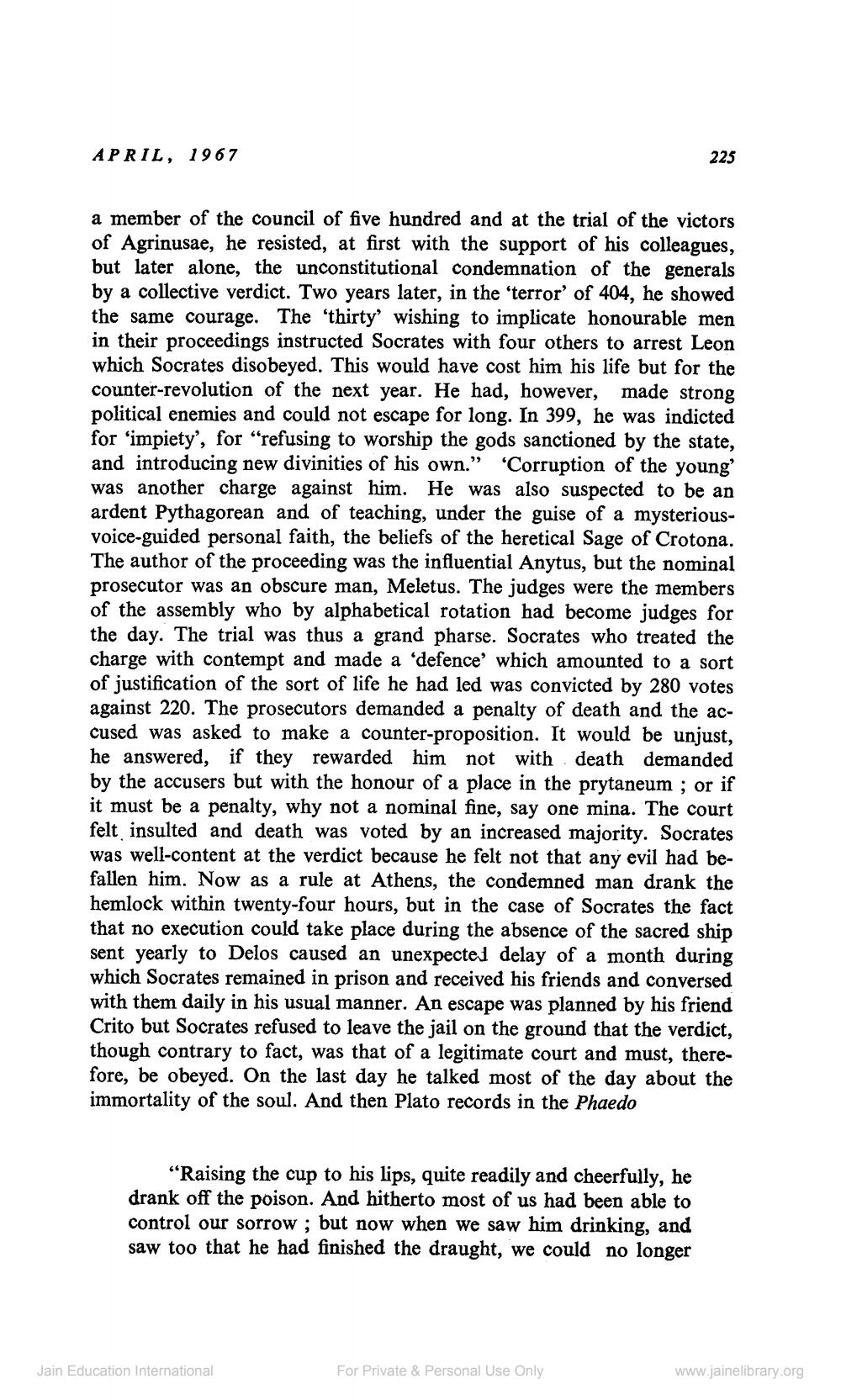________________
APRIL, 1967
225
a member of the council of five hundred and at the trial of the victors of Agrinusae, he resisted, at first with the support of his colleagues, but later alone, the unconstitutional condemnation of the generals by a collective verdict. Two years later, in the 'terror' of 404, he showed the same courage. The 'thirty wishing to implicate honourable men in their proceedings instructed Socrates with four others to arrest Leon which Socrates disobeyed. This would have cost him his life but for the counter-revolution of the next year. He had, however, made strong political enemies and could not escape for long. In 399, he was indicted for 'impiety', for "refusing to worship the gods sanctioned by the state, and introducing new divinities of his own.” “Corruption of the young was another charge against him. He was also suspected to be an ardent Pythagorean and of teaching, under the guise of a mysteriousvoice-guided personal faith, the beliefs of the heretical Sage of Crotona. The author of the proceeding was the influential Anytus, but the nominal prosecutor was an obscure man, Meletus. The judges were the members of the assembly who by alphabetical rotation had become judges for the day. The trial was thus a grand pharse. Socrates who treated the charge with contempt and made a 'defence' which amounted to a sort of justification of the sort of life he had led was convicted by 280 votes against 220. The prosecutors demanded a penalty of death and the accused was asked to make a counter-proposition. It would be unjust, he answered, if they rewarded him not with death demanded by the accusers but with the honour of a place in the prytaneum ; or if it must be a penalty, why not a nominal fine, say one mina. The court felt insulted and death was voted by an increased majority. Socrates was well-content at the verdict because he felt not that any evil had befallen him. Now as a rule at Athens, the condemned man drank the hemlock within twenty-four hours, but in the case of Socrates the fact that no execution could take place during the absence of the sacred ship sent yearly to Delos caused an unexpected delay of a month during which Socrates remained in prison and received his friends and conversed with them daily in his usual manner. An escape was planned by his friend Crito but Socrates refused to leave the jail on the ground that the verdict, though contrary to fact, was that of a legitimate court and must, therefore, be obeyed. On the last day he talked most of the day about the immortality of the soul. And then Plato records in the Phaedo
“Raising the cup to his lips, quite readily and cheerfully, he drank off the poison. And hitherto most of us had been able to control our sorrow ; but now when we saw him drinking, and saw too that he had finished the draught, we could no longer
Jain Education International
For Private & Personal Use Only
www.jainelibrary.org




